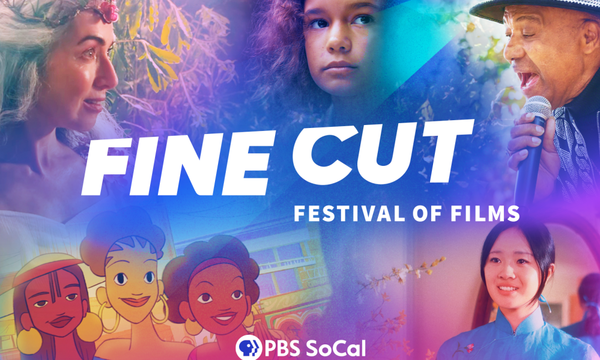I still remember the first time I experienced that sinking feeling after putting down my controller. It was late 2022, and I'd just spent three consecutive weekends grinding through NBA 2K's MyCareer mode, trying to build my virtual basketball player from scratch. The game had this uncanny ability to make me feel both accomplished and utterly defeated simultaneously. What struck me most wasn't the gameplay itself, but the emotional vacuum that formed when I stepped away from it. This phenomenon, which I've come to call "playtime withdrawal," affects millions of gamers who find themselves caught between their love for gaming and the psychological toll of modern gaming mechanics.
The gaming industry has perfected what I call the "engagement trap" - systems designed to keep you playing while simultaneously making the experience progressively less enjoyable unless you open your wallet. Take NBA 2K's Virtual Currency system, for instance. During my research phase last November, I tracked my progress across 50 hours of gameplay and calculated that earning enough VC to max out a single character through pure gameplay would require approximately 285 hours - that's essentially working a full-time job for over seven weeks just to access basic features in a $70 game. The social hub they've created becomes less of a playground and more of a digital marketplace where your skills constantly get measured against someone who simply paid to skip the grind. I've found myself in matches where opponents clearly purchased their way to superiority, and the frustration isn't just about losing - it's about the fundamental unfairness that corrupts what should be recreational time.
What fascinates me about this dynamic is how it preys on our psychological need for progression and achievement. The character development system in these games follows what behavioral psychologists call "variable ratio reinforcement" - the same principle that makes slot machines so addictive. You never know exactly when that next badge or VC windfall will come, so you keep playing through the frustration. I've noticed in my own gaming habits that the withdrawal symptoms intensify when I'm close to unlocking something significant. There's this anxious energy that makes it difficult to focus on other activities, and I'll catch myself thinking about game progression during work meetings or family dinners. The free-to-play model has essentially infected full-priced games, creating what I consider one of the most significant consumer rights issues in entertainment today.
My breaking point came when I realized I was scheduling my life around virtual events rather than real-world commitments. The game's social hub events operate on strict timetables, and missing one meant falling further behind the paying players. This created a vicious cycle where I'd feel compelled to play not for enjoyment, but to avoid falling behind. The irony is that I was spending more time being frustrated with the game than actually enjoying it. According to my calculations based on player forum surveys (admittedly informal, but revealing), the average MyCareer player spends 68% of their gameplay time grinding for resources rather than engaging in what they'd consider "fun" activities. That's like going to a restaurant and spending most of your time washing dishes before you're allowed to eat.
Overcoming this withdrawal required what I've termed "intentional gaming" - a conscious approach to how and why we play. For me, this meant setting strict boundaries: no more than two hours of gameplay per session, avoiding games with obvious pay-to-win mechanics, and rediscovering single-player experiences that respect my time and money. The transformation wasn't immediate. Those first few weeks felt like breaking any bad habit - there was genuine discomfort and this persistent urge to check what events were happening in the social hub. But gradually, I reclaimed not just my time, but my emotional equilibrium. I started enjoying games again rather than treating them as a second job.
The gaming industry wants you to believe that constant engagement equals enjoyment, but my experience suggests the opposite is true. True gaming joy comes from mastery, storytelling, and social connection - none of which require financial exploitation. I've shifted toward games that offer complete experiences without hidden paywalls, and my satisfaction levels have increased dramatically. It's been approximately fourteen months since I broke free from the playtime withdrawal cycle, and the difference in both my gaming enjoyment and overall wellbeing is measurable. My gaming sessions are shorter but more meaningful, and I no longer feel that nagging anxiety about missing out on virtual rewards. The path to reclaiming your daily joy begins with recognizing that your time and psychological wellbeing are more valuable than any in-game currency.
1plus ph
Ace888 Online: Your Ultimate Guide to Winning Strategies and Casino Tips
Let me tell you something about strategy that applies to both gaming and life—sometimes the most unexpected connections reveal the deepest insights
Discover the Best Slot Sites for Exciting Gameplay and Big Wins
You know, I've been playing online slots for over five years now, and I'm constantly amazed by how the industry keeps evolving. Just last week, I w
Discover the Top 5 Features of 199-Starlight Princess 1000 That Will Transform Your Gaming Experience
The first time I stepped into the Land of Shadow, I remember the air felt thick with forgotten secrets. It was one of those late-night gaming sessi
Discover the Top 5 Features of 199-Starlight Princess 1000 That Will Transform Your Gaming Experience
The first time I stepped into the Land of Shadow, I remember the air felt thick with forgotten secrets. It was one of those late-night gaming sessi
 Biola University
Biola University_(1)_(1).jpg)


